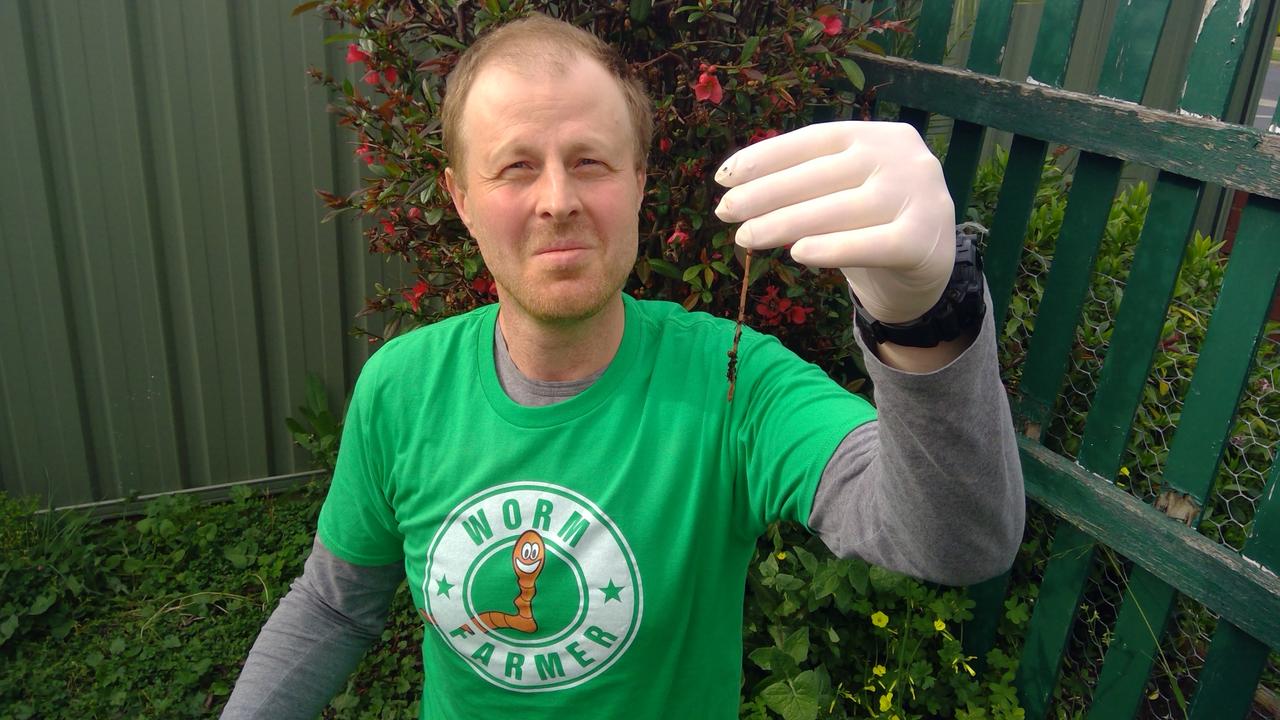Alligator-squeak research wins big science prize
Scientists have won an international prize for research intended to make you laugh — and then think — for testing whether an alligator that breathes in helium squeaks like Minnie Mouse

READING LEVEL: ORANGE
Scientists have won an international prize for testing whether an alligator squeaks like Minnie Mouse after inhaling helium, the gas used to float balloons.
Their work won an Ig Nobel prize for Acoustics*. The Ig Nobel prizes are an annual honour for accomplishments in science and humanities intended to make you laugh — then think.
The name Ig Nobel comes from a play on the word ignoble — humble* or not honourable in purpose — and the Nobel prizes, the set of annual international awards in recognition of academic, cultural, or scientific advances.
“Our question was whether alligators have vocal tract resonances* like human speech,” said biologist Tecumseh Fitch, a member of the research team, who came from Austria, Sweden, Japan, the US and Switzerland. “The hard part is getting an alligator to breathe helium.”
That was solved by getting a female Chinese alligator into an airtight chamber and pumping in helium, which makes sound travel faster.
Alligators bellow a lot during mating season, possibly as a way to signal body size and mojo*, the researchers said. Helium made the reptile sound less of a hunk*.
“Crocodilian vocalisations could thus provide an acoustic indication of body size,” said the winning research paper, originally published in the Journal of Experimental Biology.
The alligator on helium did not squeak, but let out a burp.

A DIFFERENT CEREMONY
Because of the coronavirus pandemic, the 30th annual Ig Nobel ceremony was a 75-minute prerecorded virtual event instead of the usual live event at Harvard University in the US.
Even so, it managed to maintain some of the event’s traditions, including real Nobel prize laureates* handing out the amusing alternatives.
Each winner was mailed a document that they could print out that included instructions on how to assemble their own cube-shaped prize. To make it look as if the real Nobel laureates were handing them out, they handed their prizes off screen, and the winner reached off screen to pull in the one they had self-assembled.
As usual, most winners welcomed the recognition that comes with the spoof* prize — sort of.
While the Ig Nobels ridicule* legitimate* scientific work, they also bring attention and publicity.

WINNING WORLD LEADERS
This year’s winners included world leaders who think they’re smarter than doctors and scientists.
The Ig Nobel for Medical Education was shared by a group including US President Donald Trump, British Prime Minister Boris Johnson and Russian President Vladimir Putin for their attitude around the pandemic.
“These are all individuals who realised that their judgment is better than the judgment of people who have been studying this their entire lives, and were more insistent about it,” said Marc Abrahams, editor of the Annals of Improbable Research magazine, the event’s primary sponsor.
Mr Abrahams made efforts to reach out to the world leaders to accept their awards, with no luck. “It would have been fun for them to take part,” he said.
AN ICKY IG NOBEL
Another 2020 winner was an anthropologist who tested an urban legend by fashioning a knife out of frozen human faeces*.
Metin Eren has been fascinated since high school by the story of an Inuit man in Canada who made a knife out of his own excrement*. The story has been told and retold, but is it true?
Dr Eren, an assistant professor of anthropology at Kent State University, US, and co-director of the university’s Experimental Archaeology Lab, used real human faeces frozen to minus-50C and filed to a sharp edge.
He then tried to cut meat with it.
“The poop knives failed miserably,” he said.
The study is a little gross but makes an important point: There are a lot of narratives* out there based on phony* or unproven science.
“The point of this was to show that evidence and fact checking are vital,” he said.
Dr Eren attended the Ig Nobel ceremony in 2003 when he was an undergraduate student at Harvard, so he was thrilled to finally win one of his own.
“To be honest, it was a dream come true,” he said.

AN AUSSIE IG NOBEL
Australian researchers, physicist Ivan Maksymov and mathematician Andriy Pototsky received their Ig Nobel award for placing sedated* earthworms on a speaker and finding that the vibrations caused the earthworms to form patterns in the same way water droplets react to vibrations.
The Swinburne University researchers said their work was inspired by a Danish scientist’s theory that the brain not only functions using nerved-based electric pulses, but also acousto-mechanical (or sound wave) signals.
They chose to work with earthworms because they are cheap, don’t require ethics* approval and there are similarities with mammal nerve fibres.
Though it sounds like it was just for fun, it may change scientists’ understanding of how the brain functions, and how to interact with it.
GLOSSARY
- acoustics: to do with sound
- humble: simple and not showing off
- resonances: the quality of a sound
- mojo: charm or magic
- hunk: a strong and attractive man
- laureates: people who are honoured with a special award
- spoof: a joke version
- ridicule: making fun of someone or something
- legitimate: serious, following rules and of value
- faeces: poo
- excrement: poo
- narratives: stories
- phony: fake
- sedated: calmed with a sedative drug
- ethics: moral principles that are a guide to whether something is right or wrong
EXTRA READING
Scientist Marie Curie is top of the list
High hopes for Aussie invention
Teens win award for looking after nan
Greta named Person of the Year for 2019
QUICK QUIZ
- What did the alligator do when it breathed in helium?
- What does the name Ig Nobel mean?
- Why is Donald Trump mentioned in this story?
- Explain the point of Dr Eren’s research.
- What did the Australian researchers study?
LISTEN TO THIS STORY
CLASSROOM ACTIVITIES
1. Conduct an Interview
Pretend you are a news reporter for a television or radio news segment.
Choose one of the 2020 Ig Nobel prize winners to conduct an interview with. Your interview should begin by introducing what the Ig Nobel prize is, who you are interviewing and why. Follow this introduction with at least 3 (you can do more) questions to help them elaborate on their research. Come up with a likely answer from the person you are interviewing, for each question. The Ig Nobel prizes are awarded for bizarre research so your interview can make light of the research and be funny. A good interviewer will be able to ask questions to bring out the funny side of the research without being offensive the person who received the award.
Write a transcript of the interview. A transcript is a copy of what was said, set out like a script for a play.
Interviewer (YOUR NAME): Tonight, our special guest is _________ from _____, who has taken out the 2020 Ig Nobel prize for their research into ______________. The Ig Nobel awards are ….
Time: allow 30 minutes to complete this activity
Curriculum Links: English, Science, Critical and Creative thinking
2. Extension
What scientific or humanities study could you conduct to put you in the running for an Ig Nobel prize in 2021?
Come up with a question and a research plan that might make people laugh and therefore qualify for the Ig Nobel award.
Write your question and give a brief outline of how you will conduct your research.
Time: allow 20 minutes to complete this activity
Curriculum Links: English, Science, Critical and Creative thinking
VCOP ACTIVITY
Down-Level It
When you up-level a sentence, you do things to it to improve it: make it more interesting, or more complex.
But sometimes, when we read something it can be too complex and we don’t understand it very well. You ask someone to explain it to you, they do (in a simpler way) and you think, well why didn’t they just say that?
Go through the article and find a sentence or two that is complex, or hard to read.
Ask an adult what it means, or try and look some of the words up in the glossary.
Once you know what it means, see if you can rewrite it in a simpler way- down-level it.
Make sure you don’t change the meaning of the sentence in any way though.
HAVE YOUR SAY: What do you think of the Ig Nobels?
No one-word answers. Use full sentences to explain your thinking. No comments will be published until approved by editors.

